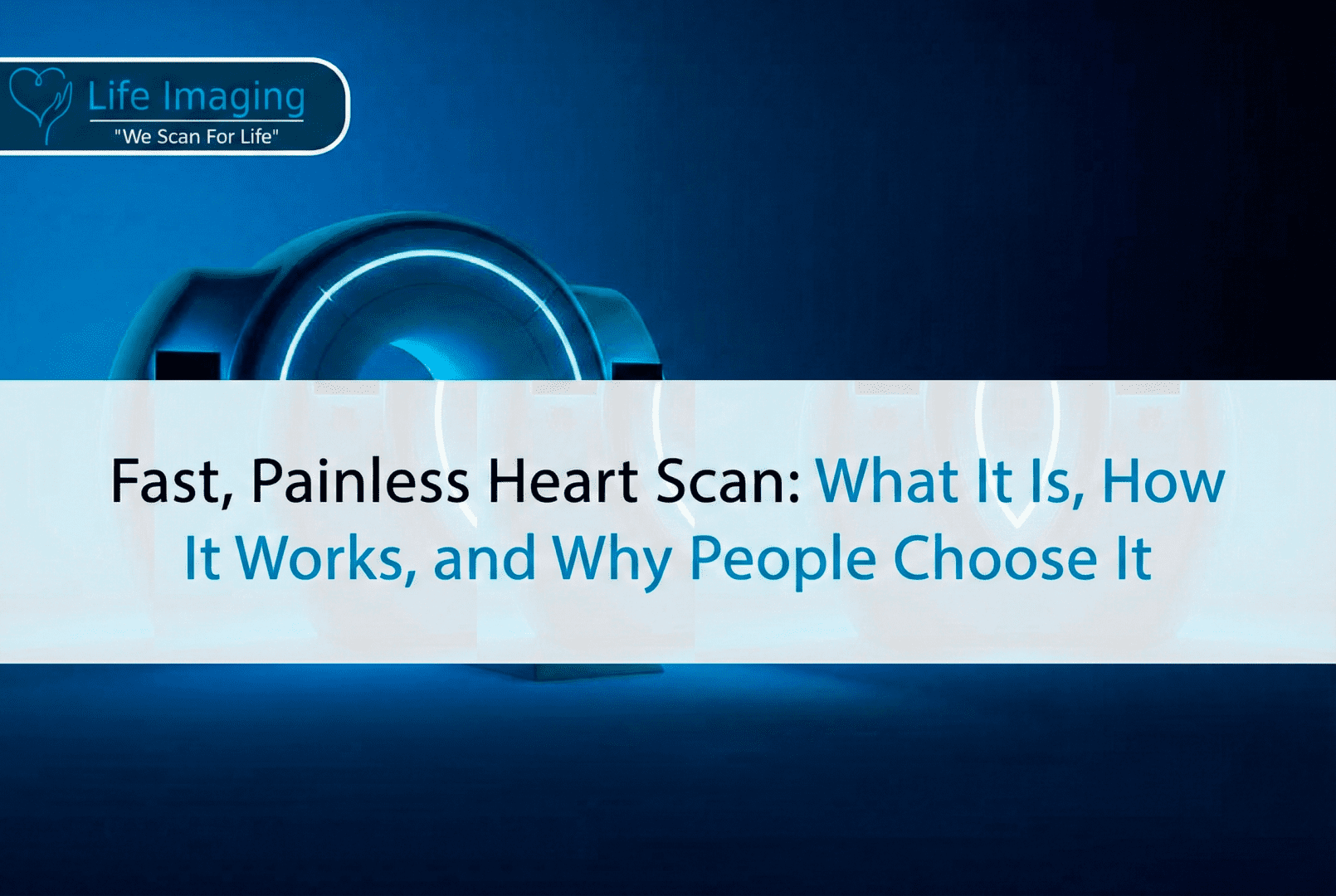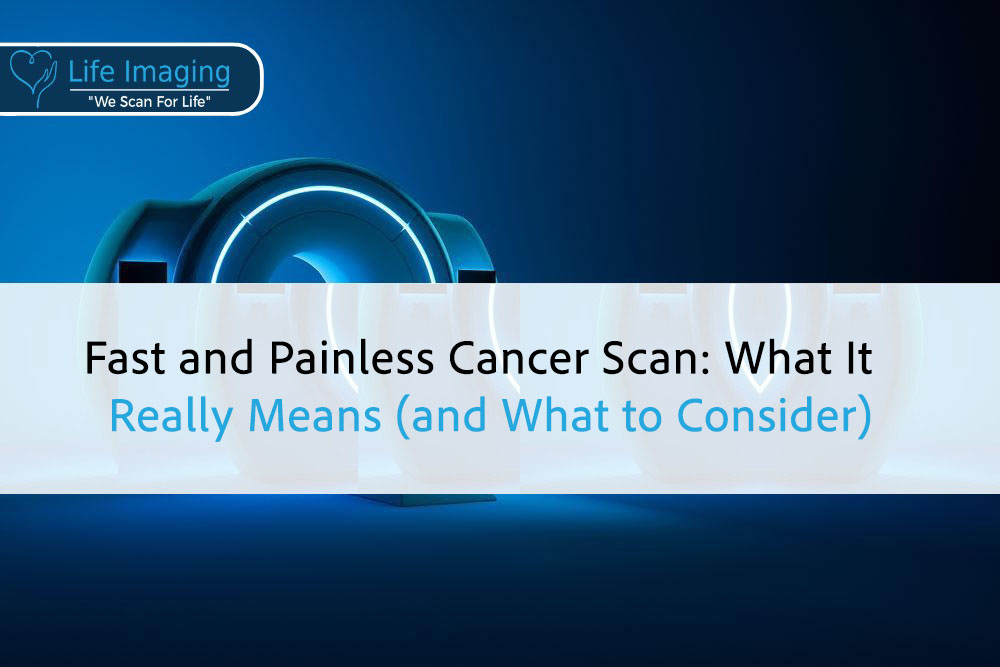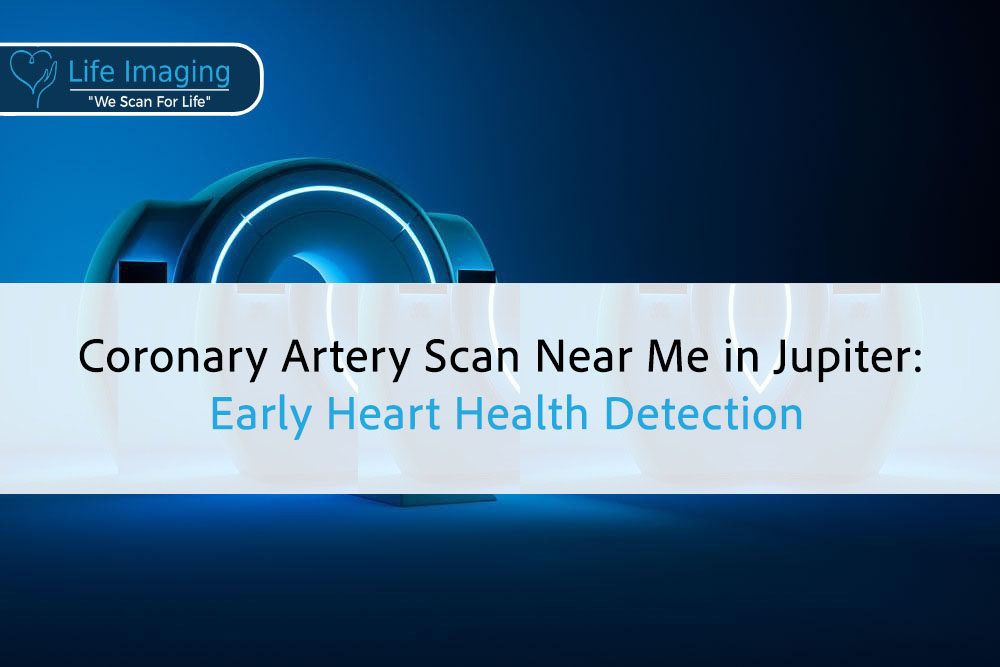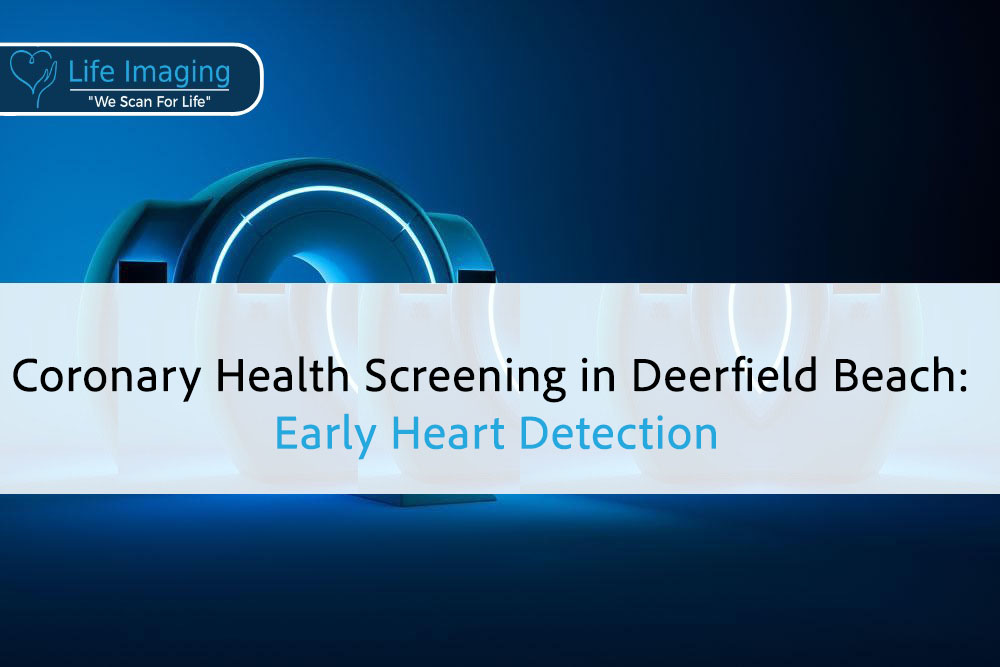Duodenal cancer is a rare type of cancer that affects the first part of the small intestine, called the duodenum. This cancer can be hard to detect early because its symptoms often overlap with other digestive issues. Understanding more about this type of cancer and the available screening options can help you take control of your health.
The duodenum is a vital part of your digestive system, located just after the stomach. It plays a key role in breaking down food and absorbing nutrients. When cancer develops here, it can disrupt these important processes and cause serious health problems. Early detection through screening tests is crucial for effective treatment and better outcomes.
Knowing the risks and signs of duodenal cancer can encourage you to seek medical advice sooner rather than later. Screening tests, such as blood tests, imaging tests, endoscopy, and biopsies, are essential tools in detecting duodenal cancer at an early stage.
By familiarizing yourself with these screening options, you can be better prepared to discuss them with your healthcare provider and make informed decisions about your health.
What Is Duodenal Cancer?
Duodenal cancer is a type of cancer that starts in the duodenum, the first part of the small intestine. The duodenum is a critical part of your digestive system where food mixes with digestive juices to break down nutrients for absorption. Duodenal cancer can disrupt this process and cause health problems.
This cancer is relatively rare but serious. It often starts in the lining of the duodenum and can spread to other parts of the body if not treated early. Tumors in the duodenum can block the digestive tract, making it difficult for food to pass through, which can lead to severe complications.
Treatment options for duodenal cancer can include surgery, chemotherapy, and radiation. The choice of treatment depends on the stage of cancer and its location. Early detection through screening is crucial for effective treatment and better prognosis.
Signs and Symptoms of Duodenal Cancer
Detecting duodenal cancer early can be challenging since its symptoms can be similar to other digestive issues. However, knowing what to look for can help you take action sooner.
Common signs and symptoms include:
- Abdominal Pain: Persistent pain in the upper abdomen can be a sign of duodenal cancer.
- Vomiting: Frequent vomiting, sometimes with blood, may occur.
- Weight Loss: Unexplained weight loss is a common symptom of many cancers, including duodenal cancer.
- Nausea: Feeling nauseous without an obvious cause can be a symptom.
- Fatigue: Constant tiredness or weakness might indicate a problem.
- Changes in Bowel Habits: Experiencing diarrhea or changes in stool color can be signs.
- Jaundice: Yellowing of the skin and eyes could indicate a blockage of the bile duct by a tumor.
If you experience any of these symptoms, consult your doctor immediately. Early diagnosis can significantly improve the outcomes and success of treatment.
Who Is at Risk for Duodenal Cancer?
Certain factors can increase your risk of developing duodenal cancer. Understanding these risks can help you decide if you need regular screening.
Risk factors include:
- Age: The risk increases with age, particularly for people over 60.
- Family History: A history of gastrointestinal cancers in your family can raise your risk.
- Genetic Conditions: Conditions like Lynch syndrome or familial adenomatous polyposis (FAP) can increase the risk.
- Smoking: Tobacco use is a known risk factor for many cancers, including duodenal.
- Alcohol Use: Excessive alcohol consumption can also contribute to risk.
- Chronic Inflammation: Conditions like Crohn’s disease or celiac disease that cause long-term inflammation can raise your risk.
- Diet: Diets high in red meats and low in fruits and vegetables can elevate risk levels.
Discuss your risk factors with your healthcare provider to determine if regular screenings are necessary. Early detection is key to managing and treating duodenal cancer effectively.
Importance of Early Detection
Early detection of duodenal cancer is vital for improving treatment outcomes. The earlier the cancer is found, the more treatment options are available, and the better the chances of successful treatment.
Benefits of early detection include:
- More Treatment Options: When detected early, surgery and other less aggressive treatments can be more effective.
- Better Survival Rates: Early-stage cancer is generally more treatable and has higher survival rates.
- Improved Quality of Life: Early treatment can prevent the complications that come with advanced cancer, such as severe pain or digestive issues.
- Reduced Healthcare Costs: Early detection often leads to less invasive treatments, which can be less expensive and cause fewer side effects.
Regular screenings and paying attention to symptoms can help you catch duodenal cancer early. If you are at risk, talk to your doctor about the best screening schedule for you. Early action can make a significant difference in your health and well-being.
Blood Tests for Duodenal Cancer
Blood tests are a common initial step in diagnosing duodenal cancer. These tests can provide important clues about your overall health and help detect cancer markers that might be present in your blood.
Types of blood tests used:
- Complete Blood Count (CBC): This test measures different components of your blood, like red and white blood cells and platelets. Abnormal levels can indicate many health issues, including cancer.
- Liver Function Tests: Since the duodenum is near the liver, liver function tests can help identify abnormalities that might be related to duodenal cancer.
- Tumor Markers: Some cancers produce specific proteins, known as tumor markers, that can be detected in the blood. Elevated levels of certain markers may suggest the presence of duodenal cancer.
Blood tests alone cannot diagnose duodenal cancer but they are an essential part of the screening process. They help guide further diagnostic tests and treatments.
Imaging Tests: CT Scans and MRIs
Imaging tests provide detailed pictures of your internal organs, helping doctors spot abnormalities in the duodenum.
Common imaging tests include:
- CT Scans: A CT scan uses X-rays to produce detailed cross-sectional images of the body. It’s especially useful for identifying tumors and determining their size and location.
- MRIs: Magnetic Resonance Imaging (MRI) uses magnets and radio waves to create detailed images of your organs. MRIs can be particularly helpful in examining soft tissues and identifying tumors that might not show up on X-rays.
What to Expect:
- Preparation: You might need to fast for a few hours before the test. Remove any metal objects, as they can interfere with imaging.
- During the Test: You will lie on a table that slides into the scanner. The process is painless, but you’ll need to stay still for clear images.
- After the Test: You can usually resume normal activities right away. Your doctor will review the images and discuss the results with you.
These imaging tests are crucial for a thorough examination of the duodenum, helping guide the next steps in diagnosis and treatment.
Endoscopy: A Closer Look at the Duodenum
Endoscopy is a procedure that allows doctors to view the inside of your digestive tract, including the duodenum, using a flexible tube with a camera.
Steps in an endoscopy procedure:
- Preparation: You’ll need to fast for several hours beforehand. Your doctor might also give you a sedative to help you relax during the procedure.
- During the Procedure: You’ll lie on your side as the doctor gently inserts the endoscope through your mouth and into your digestive tract. The camera transmits images to a monitor, allowing the doctor to examine the duodenum closely. The procedure typically takes 15-30 minutes.
- Biopsy: If the doctor sees any suspicious areas, a small tissue sample (biopsy) may be taken for further analysis.
What to Expect After:
- Recovery: You’ll be monitored for a short time until the sedative wears off. You might experience mild throat discomfort, but this usually passes quickly.
- Results: Biopsy results can take a few days. Your doctor will discuss the findings and any next steps needed.
Endoscopy is a valuable tool for diagnosing duodenal cancer, offering a clear view of the duodenum and the ability to take biopsies.
Biopsy Procedures and What to Expect
A biopsy involves taking a small sample of tissue from the duodenum to check for cancer cells. It’s often done during an endoscopy but can be a separate procedure.
Types of biopsy procedures:
- Endoscopic Biopsy: This is done during an endoscopy. The doctor uses the endoscope to take small tissue samples from suspicious areas.
- Needle Biopsy: In some cases, a needle biopsy might be performed. Under imaging guidance, a needle is inserted through the skin to extract a tissue sample from the duodenum.
Steps in a biopsy procedure:
- Preparation: Follow your doctor’s instructions, which may include fasting and stopping certain medications.
- During the Procedure: If done during endoscopy, the biopsy is quick and you won’t feel pain. For needle biopsies, a local anesthetic will numb the area.
- After the Procedure: You might have mild discomfort, but it usually resolves quickly.
Getting Results:
- Analysis: The tissue sample is examined under a microscope to detect cancer cells.
- Discussion: Your doctor will discuss the results with you and explain any further steps needed.
A biopsy is a crucial test for confirming a diagnosis of duodenal cancer. It provides detailed information about the nature and extent of the disease, guiding treatment options.
Genetic Testing for Cancer Risk
Genetic testing is a powerful tool in understanding your risk for duodenal cancer. It involves analyzing your DNA to identify mutations that may increase your risk.
Key Genetic Mutations:
- APC Gene: Mutations in the APC gene are commonly linked to familial adenomatous polyposis (FAP), which can increase the risk of duodenal cancer.
- MLH1 and MSH2 Genes: These genes are linked to Lynch syndrome, which also elevates the risk for various cancers, including duodenal cancer.
Benefits of Genetic Testing:
- Risk Awareness: Knowing your genetic risk allows you to take proactive measures for early detection and prevention.
- Family Health: If you test positive for a mutation, your family members may also need testing and can take preventive steps if needed.
- Personalized Care: Genetic information helps doctors tailor your screening and treatment plans to meet your needs precisely.
Discuss genetic testing with your doctor, especially if you have a family history of cancer. It provides a clearer picture of your health and the actions you can take to protect it.
Preparing for Your Screening Tests
Getting ready for your duodenal cancer screening can help ensure that the tests are effective and the results are accurate. Here’s how to prepare:
Before the Screening:
- Dietary Restrictions: For certain tests like endoscopy, you may need to fast or follow specific dietary guidelines.
- Medication Instructions: Discuss with your doctor which medications you should stop or continue. Some may affect your test results.
- Medical History: Be prepared to share your medical history and any symptoms you’ve noticed. This information is crucial for accurate diagnosis.
On the Day of the Screening:
- Comfortable Clothing: Wear loose, comfortable clothes, especially for longer procedures.
- Transportation: Some procedures like biopsies or endoscopies may require sedation. Make arrangements for someone to drive you home afterwards.
- Follow Instructions: Follow any last-minute instructions from your doctor to ensure the test goes smoothly.
After the Screening:
- Rest and Recovery: After a biopsy or an endoscopy, take it easy. Follow your doctor’s advice on what activities to avoid and when you can resume normal activities.
- Follow-Up: Ask when you will get your results and schedule a follow-up appointment to discuss them.
Proper preparation makes your screening more effective and helps ensure you get precise and accurate results.
Interpreting Your Screening Results
Understanding your screening results is crucial for taking the next steps in your healthcare journey. Here’s how to make sense of them:
Types of Results:
- Normal: No signs of cancer or abnormalities were found. Continue with regular screenings as advised by your doctor.
- Abnormal, Benign: Non-cancerous conditions, such as polyps or infections, may show up. Follow your doctor’s advice for treatment or monitoring.
- Potential Cancer: Abnormal spots that might be cancerous will need further investigation with more tests like a biopsy.
Next Steps:
- Discuss with Your Doctor: Have a detailed conversation with your healthcare provider to understand what the results mean for your health.
- Additional Testing: If your results are abnormal, your doctor may recommend more tests to confirm whether it’s cancer or another condition.
- Treatment Options: If cancer is detected, your doctor will discuss treatment options, which may include surgery, radiation, or chemotherapy.
Emotional Support:
- Seek Support: It’s normal to feel anxious or scared. Talk to friends, family, or a counselor to help manage your emotions during this time.
- Stay Informed: Knowledge is power. Learn about your condition and treatment options to make informed decisions.
Understanding your results empowers you to take the necessary actions to maintain your health or begin treatment if needed.
Next Steps After a Duodenal Cancer Diagnosis
Facing a duodenal cancer diagnosis can be overwhelming, but knowing the next steps can help you manage your treatment and improve your outlook.
Immediate Actions:
- Consult Your Oncologist: Schedule an appointment with a cancer specialist to discuss your treatment options and make a plan.
- Get a Second Opinion: Consider seeking a second opinion to confirm your diagnosis and treatment approach. It can provide reassurance and additional insights.
Treatment Options:
- Surgery: Removing the tumor may be the first step if the cancer is localized.
- Chemotherapy: Used to kill cancer cells or stop them from growing. It can be used before or after surgery.
- Radiation Therapy: Uses high-energy rays to target and kill cancer cells. Sometimes used in combination with chemotherapy or surgery.
Support and Care:
- Support Network: Lean on friends, family, and cancer support groups for emotional and practical help.
- Lifestyle Changes: Focus on maintaining a healthy diet, staying active, and avoiding stress to support your body during treatment.
- Monitor Health: Regular follow-ups with your healthcare team are vital to monitor your health and detect any recurrence early.
Taking these steps helps you manage your diagnosis and navigate the treatment process effectively.
Duodenal Cancer Awareness: The Importance of Screening
Early detection and proactive management are vital in dealing with duodenal cancer. From understanding your genetic risks and preparing for screenings to interpreting test results and taking the next steps after a diagnosis, being informed and ready is your best strategy.
Screening tests like genetic testing, blood tests, and imaging can catch issues early when treatment is most effective. Knowing how to prepare for these tests, what results mean, and the options available if diagnosed can make a big difference in outcomes.
Take the first step towards proactive health management by scheduling your comprehensive cancer screening in Orlando, FL, with Life Imaging Fla. Early detection and timely action are essential. Contact us today to book your screening and secure your health and peace of mind!








